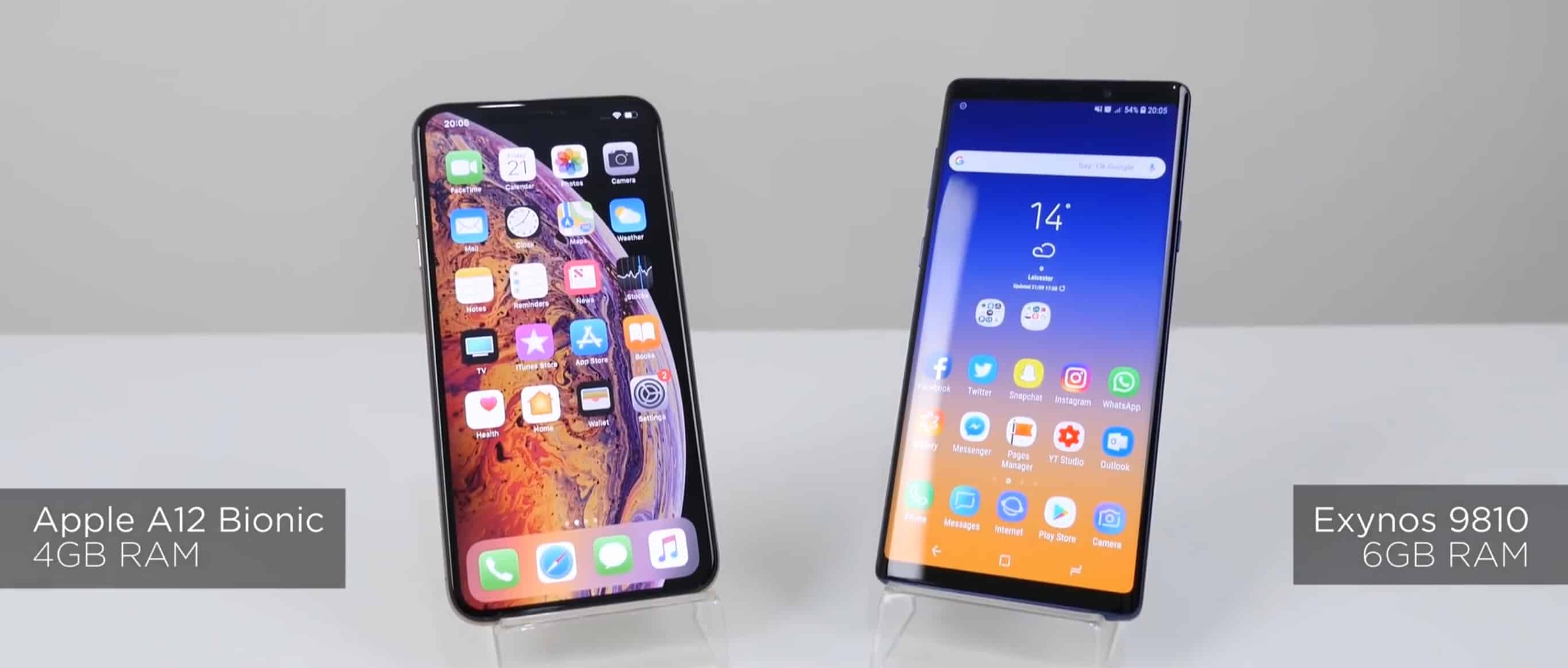Both Samsung and Apple offer really large smartphones fo those who want to carry a miniature tablet around with them everywhere. Anyone trying to decide between the iPhone XS Max and the Galaxy Note 9 should consider which one offers better performance.
In several head-to-head tests, the iPhone solidly beats its Android-based rival. That’s in both benchmarks and real-world use.
iPhone XS Max vs. Galaxy Note 9: benchmarks
Probably the best option to compare phones running different operating systems is the benchmarking application Geekbench 4 from Primate Labs.
We put our iPhone XS Max through its multi-core score test, and it scored 11,555. For comparison, the Galaxy Note 9 scored 8,998. That gives the iOS device a 28 percent advantage.
In the Geekbench compute test, Samsung’s phablet pulled in a 14365, while our XS Max scored 21,895. That puts the iPhone 52 percent ahead.
The iPhone XS Max runs a 2.49GHz A12 Bionic hexagon-core processor. The Galaxy Note 9 uses a 2.7GHz Exynos octa-core processor, so one might expect it to be faster. But Apple’s A12 chip uses a 7nm process, while the Qualcomm one is 10nm.
iPhone XS Max vs. Galaxy Note 9: real world
Benchmarks are all very well, but they don’t always indicate how devices perform in everyday use. That’s why SuperSaf TV did a side-by-side comparison of Apple’s and Samsung’s largest phones.
In this test, the two devices open a 12 applications available for both platforms, with a timer indicating which does so more quickly:
The Galaxy Note 9 comes out ahead in five of these, while the iPhone XS Max wins in seven. Specifically, the iOS device loaded almost all the games more quickly, while the Android model won when loading social-networking software.
All of these applications were left running in the background. So SuperSaf TV then checked to see if they’d been automatically closed. It turns out the XS Max hadn’t closed any of its dozen apps, while the Note 9 had been forced to close three of them. This despite Samsung putting 6GB of RAM in its model to Apple’s 4GB.


